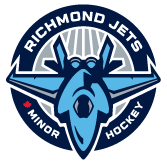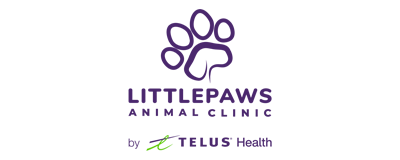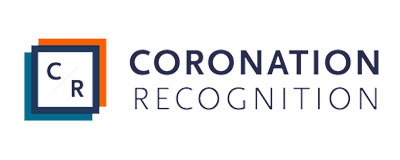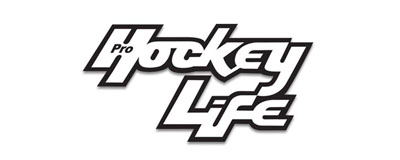HCSP & Risk Management
Requirements To Be Certified as a Hockey Canada Safety Person
-
Criminal Record Check (CRC)
-
Respect In Sports (Activity Leaders)
-
CATT - Concussion Assessment Training Tool
-
Hockey Canada Safety Person Course
What is a Hockey Canada Safety Person (HCSP)?
The Hockey Canada Safety Program utilizes a proactive, preventative, common-sense approach to keeping our children safe. The goal of the program is for the safety people to implement effective risk management programs with their own teams where player safety is the first priority at all times, both on and off the ice.
The safety person is a volunteer who has received HCSP accreditation. The HCSP program must be successfully completed every three (3) years in order to be a team’s safety person, even if the individual is a medical professional.
Hockey Canada Safety Program (HCSP) Guidelines:
- The minimum age for participants is 19 years of age as of December 31 of the current season.
- HCSP accreditation expires after three (3) years.
- It is mandatory to have at least one (1) certified official on each team.
- All teams intending to participate in BC Hockey Championships must include an official accredited in the HCSP by December 1 of the current season.
Learn More about the Hockey Canada Safety Person Program
Find a Hockey Canada Safety Person Clinic (Filter by Trainer/Safety)
What is the role of the Hockey Canada Safety Person?
The following are responsibilities the safety person should assume to prepare for potential injury to a player:
- Maintain accurate medical information files on all players and bring to all team activities.
- Maintain a player injury log.
- Maintain a fully-stocked first aid kit and bring to all team activities.
- Implement an effective Emergency Action Plan with your team and practice it regularly to ensure all involved understand their roles and are prepared to act promptly when an incident occurs.
- Recognize life-threatening and significant injuries, and be prepared to deal with serious injury.
- Manage minor injuries according to basic injury management principles and refer players to medical professionals when necessary.
- Recognize injuries that require a player to be removed from action. Refer players to medical professionals and coordinate return to play.
- Facilitate communication with players, coaches, parents, physicians, therapists, paramedical personnel, officials and other volunteers regarding safety, injury prevention and player’s health status.
In a situation where a player is injured on the ice, the following are the responsibilities of the safety person:
- Initially take control and assess the situation when coming into contact with the injured player.
- Instruct the player to lay still.
- Instruct bystanders to leave the injured player alone.
- Do not move the athlete and leave all the equipment in place.
- Evaluate the injury and situation. This may include anything from an unconscious player to a sprained finger. Once you have determined the severity of the injury, decide whether or not an ambulance or medical care is required.
- If the injury is serious and warrants immediate attention that you are not qualified to provide, seek out someone with the highest possible level of first aid/medical expertise.
Note:
As the safety person, you should be aware of those individuals on your team with these qualifications and arrange a signal should you need their assistance.
- If an ambulance is required, notify your call person with a pre-determined signal. Give a brief explanation of the injury and tell them to call for an ambulance. Let the injured player know that an ambulance is being called and why. This could reduce fear and panic on the part of the player.
- Once the call has been placed, observe the player carefully for any change in condition and try to calm and reassure the player until medical professionals arrive. STAY CALM. Keep an even tone in your voice.
- Make a note of the time at which the injury occurred and keep track in writing of all pertinent facts regarding the accident, including time of occurrence, time of ambulance arrival, etc.
Becoming a Hockey Canada Safety Person (HCSP)
To be rostered as a Safety Person (HCSP) you are required to do the following:
- If you don't already have a profile in the Hockey Canada Registry, contact Tina O'Connor to create one for you.
- Complete a Get your Criminal Record Check (Access Code: RDXVQWH9CU). There is no charge for this request.
- Complete the BC Hockey online course, Respect in Sport for Activity Leaders. The cost of this course will be reimbursed.
- Complete the BC Hockey online course, Concussion Awareness Training Tool - COACH COURSE. There is no charge for this course.
- Complete the BC Hockey online course, Hockey Canada Safety Person.(Filter by Trainer/Safety) The cost of this course will be reimbursed.
BC Hockey Bulletins
Stay up to date with all of the regulations changes, as well as safety information, and BC Hockey information.
- BC Hockey Bulletins - Safety & Maltreatment
- Alcohol, Drugs, Tobacco and Illegal Activity
- Insurance coverage - Out of Country Competitions (including games and tournaments)
- On-Ice Helpers
Medical & Return To Play Forms
This year we will be using the Hockey Canada Medical Form and each team manager will be providing that information once teams are formed.
For injuries and return to play please use the following forms:
If a player or team official has been injured during a game, a BC Hockey/Hockey Canada injury report must be filled out and submitted to BC Hockey (see attached Hockey Canada Injury report). This ensures that the injured player will be covered by insurance that BC Health plans may not provide. This report must be filled out completely before being submitted. There is a section for the attending medical professional (ie. emergency doctor, dentist) to fill out. Always good to get it completed as soon as possible after the injury occurs. It is recommended that the team HCSP's have at least 2 of these forms available at all times. Once the injury has healed and the player is ready to return to the ice, the “HC Return To Play” form (attached) must be filled out by a physician before they can start practicing/playing with their team again.
Clinic and On-Line Course Registration
- Respect in Sport for Activity Leaders
- Hockey Canada Safety Person
- Concussion Awareness Training Tool
Register for a BC Hockey Clinic
Course Reimbursement
Use this form to claim course expenses.
Criminal Record Check
New eCRC service
Identity verification: In the new eCRC system, an applicant’s identity is verified using their BC Services Card. If the applicant is using the BC Services Card to access the online service for first time, they will be directed to activate their card by video or in person through Service BC. Please note if applicants choose to activate their card in person, a mobile device is still required (iPhone, iPad, or Android).
Cost
There is no charge associated with activating a BC Services Card and the criminal record check fee (if applicable) has not changed.
Get your Criminal Record Check
Access Code: RDXVQWH9CU
Reporting new charges or convictions:
Applicants must report new criminal charges or convictions to their organization immediately if they work or volunteer with children or vulnerable adults.
Applicants must complete a new criminal record check which their organization will submit to the Criminal Records Review Program (CRRP). Applicants cannot work or volunteer with vulnerable people until the consent form is submitted to the CRRP.
Dressing Room Policy
Please ensure that your team follows the Dressing Room Policy. Most of the problems in the older divisions occur because of a lack of proper supervision in the change rooms.
Emergency Action Plans for Richmond Arenas
Each team must establish an Emergency Action Plan (EAP) to deal with accidents or medical emergencies. The EAP generally requires three individuals to each fill specific roles in the event of an emergency. The team Safety Person should review the facility prior to the game or practice and work with other volunteers to ensure an EAP is in place.
The following are general forms developed to assist with creation of an EAP for the various Richmond arenas. All teams from all associations are encouraged to make use of these forms.
- Richmond Ice Centre (PDF)
- Minoru Arenas (PDF)
- Richmond Olympic Oval (PDF)
Fair Play Codes
- Coaches (PDF)
- Officials (PDF)
- Parents (PDF)
- Players (PDF)
- Spectators (PDF)
Hockey Canada Resources
An Information Guide to Hockey Canada’s Risk Management and National Insurance Programs & A Guide to Understanding Bullying, Harassment and Abuse for Parents and Guardians. This document also has valuable information on equipment safety.
- Hockey Canada Safety Programs
- Emergency Action Plan for Safety Persons
- Hockey Canada Concussion Awareness
- Safety Requires Team Work & Safety For All (PDF)
Richmond Jets Minor Hockey Association
As one of the largest minor hockey associations in British Columbia, the Richmond Jets Minor Hockey Association offers an integrated (boys and girls) minor hockey program from Initiation to Juvenile. Featuring both recreational ("C") and competitive ("A") streams, our programs operate out of the three different facilities in the City of Richmond: Richmond Ice Centre (RIC), Minoru Arenas (Stadium and Silver Rinks), Richmond Oval (North and South rinks).
We acknowledge the financial support of the Province of British Columbia.








